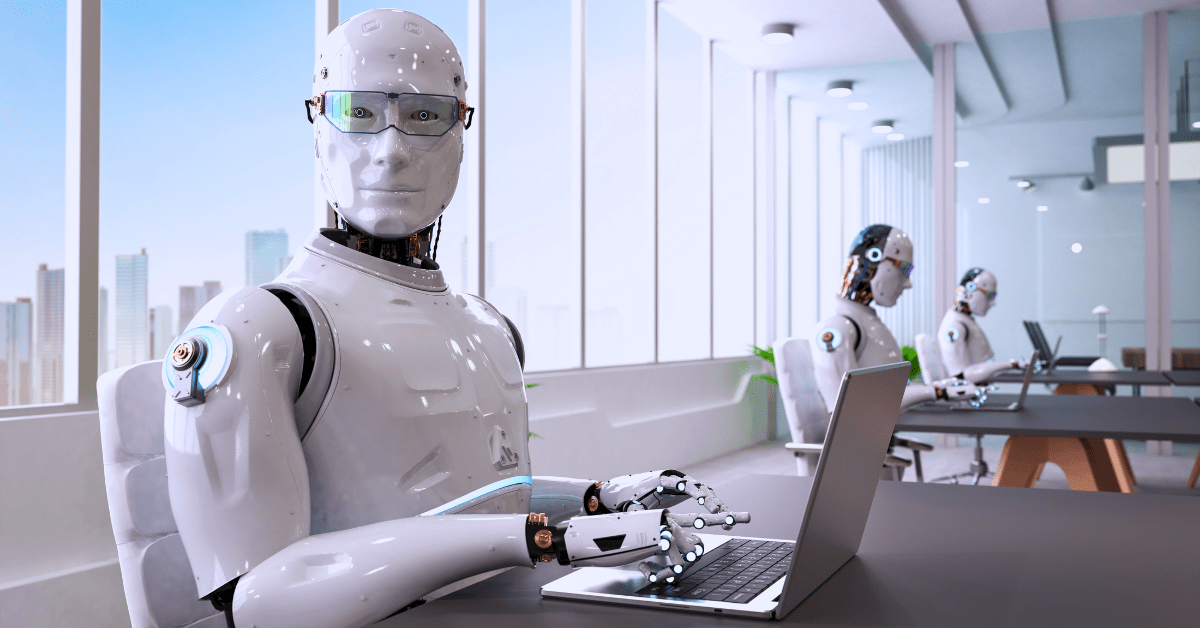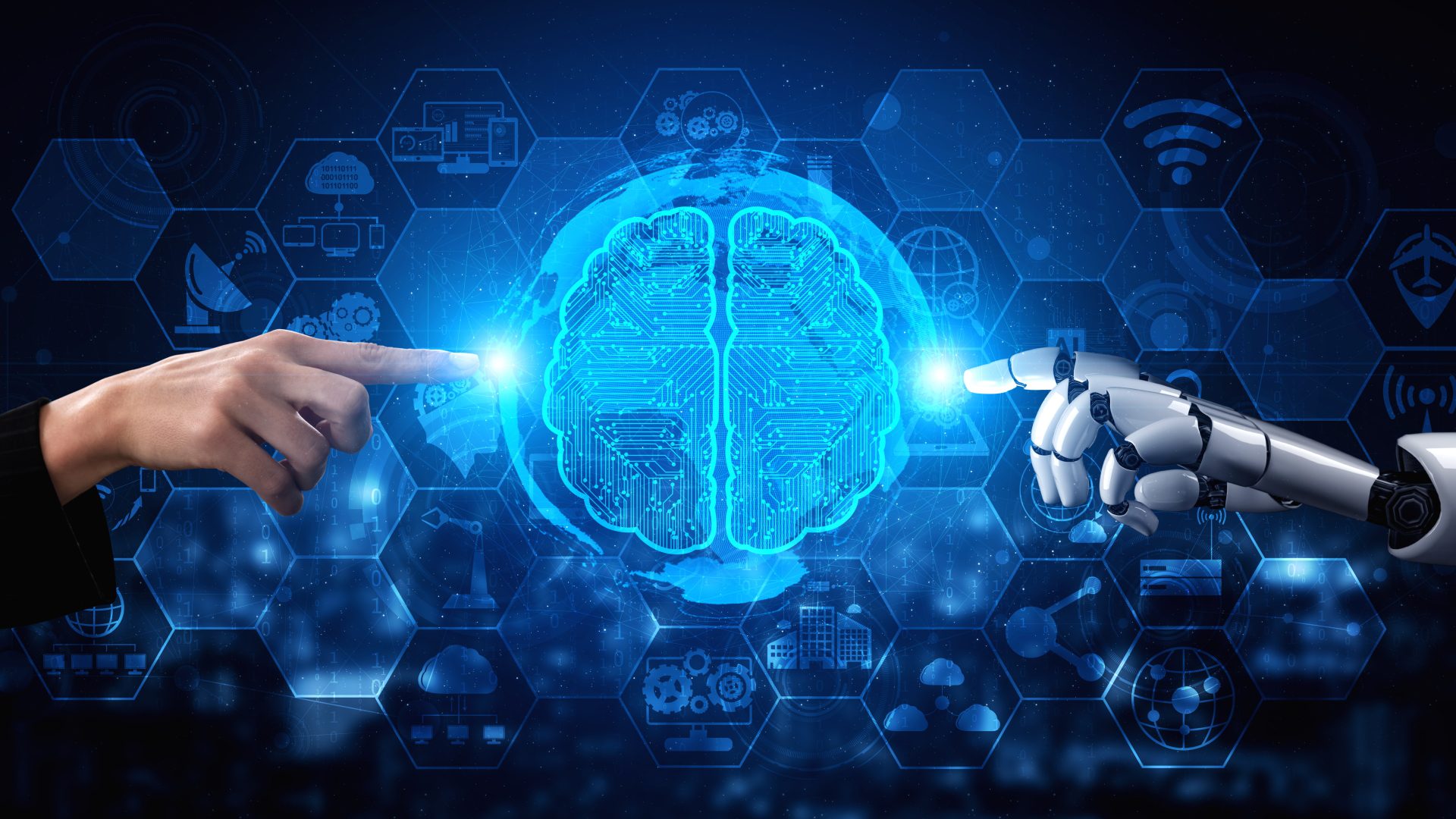Introduction
AI has come of age as the most transformative technology of the present century, and promises to revolutionize societies, economies and nation-states alike. From virtual assistants now answering the phones to autonomous vehicles on our roads, AI applications have begun to permeate every aspect of life. However, as AI continues to advance at breakneck speed, so too questions and worries about its future are afoot. In this article we would like to discuss with a human touch bent on the future of AI. We will take both potential changes as well as risks into our line of sight.

Unleashing the Potential: Opportunities for AI
Enhanced Efficiency and Productivity
AI not only offers significant promises, but it is also helping bring greater efficiency and productivity to a variety of industries. Through automation and optimization, AI technology can optimize systems by reducing costs and streamlining the workflow. In both manufacturing and health care, as well as other similar businesses using information technology (ICT), the introduction of AI has helped them to innovate develop new products so that they might be competitive in today’s global financial climate.
Improved Decision Making
Data released by the likes of Harness and XD Wu shows that AI-enabled analytics and predictive modeling are set to transform decision-making. AI systems can provide important insights that just make sense by drawing out patterns from vast amounts of data.
No matter whether it is in financial planning, marketing campaigns or at meetings with executives who need information about what their people are doing on the ground today AI-fueled decision support systems are helping individuals and corporations do their work efficiently. Generally speaking their results have been positive on this front.

Advancements in Healthcare
For healthcare, AI brings the promise of breaking through many new frontiers. AI algorithms are helping health professionals detect diseases earlier and personalize treatment plans, something that will in turn improve overall patient outcomes. As the technologies of remote medicine and telemonitoring spread even further, AI also offers additional ways to access health services especially for the people in less developed regions.
Navigating the Challenges: Concerns and Ethical Considerations
Job Displacement and Economic Disparity
If left unchecked, AI can completely reshape the world, creating new business models and industries–even new lines of work. At the same time, however, AI also brings with it a great number of challenges. High among these is its huge job-displacement capabilities. Working meanwhile has resulted in increasing anxiety over the future of employment
Ethical Dilemmas and Bias
Ethical considerations about AI have become more common with the continued development of technology. AI microsoft ven algorithms that capture and process visual data is not fundamentally different from human biasing mistakes. Moreover, the use of AI in making decisions lead to complex ethical issues of fairness, responsibility and transparency about hiring, lending decisions. To address these issues, it is necessary to engage in interdisciplinary work and commit to creating AI systems that incorporate ethical rules and human values.
Security and Privacy Risks
As AI becomes more and more pervasive, so too do the security and privacy risks associated with it. AI systems are a potential target for cyber criminals; they are attackable. And because of this, when they are attacked, the consequences can be disastrous. Moreover, the proliferation of AI-powered surveillance technology raises troubling questions about individual privacy rights and civil liberties. In order to mitigate these risks, policymakers, technologists, and stakeholders must work together. They need to put in place a robust framework of security measures that both limits the possibility for malicious actions, and protects the user from harm; while still fostering innovation.
The Human Touch: Balancing Innovation with Responsibility
While AI presents opportunities of limitless promise for the future, it also recognises that technology cannot remove all the challenges in society. As we make the most of the innovation powered by AI, we also need to retain those human qualities such as empathy, creativity, and critical thinking that make us human. In this way, responsible innovation and ethical leadership can utilise AI power to bring about a future for all that is more just, inclusive and sustainable.
Conclusion
With the advent of AI, the future is both spectacular and bewildering. All the same, it is a future filled with promise as well as hazards. It is essential, then, when coping in the rapid technological transition period to AI, not to throw compassion to the wind. By putting people first and thinking ethically, we can take hold of all the potential that this new technology offers for addressing some of humanity ‘s numerous problems–from health care and education to global warming or social justice.

FAQs (Frequently Asked Questions)
Q: Will AI replace human workers?
A: Although AI will be able to automate some tasks and roles, it looks unlikely at present that it can replace all jobs held by humans. Instead, AI is more likely to enhance human abilities while creating new emerging industries for laborers in other fields.
Q: How can we ensure that AI is used ethically and responsibly?
A: Ensuring the ethical and responsible use of AI requires a multi-stakeholder approach, involving policymakers, technologists, ethicists, and civil society organizations. Establishing clear guidelines, transparency mechanisms, and accountability procedures is essential in order to address ethical concerns and mitigate potential risks.
Q: What role does education play in preparing for the future of AI?
A: Education is a key factor in preparing individuals and societies for the future of AI. By promoting digital literacy and critical thinking skills while developing ethical reasoning abilities, we can empower people to make informed decisions about the uses and impact of AI-driven technologies.
Q: How can we address the potential biases inherent in AI systems?
A: Along with broader AI implementation there come certain potential dangers like unemployment and in economic terms; a slip in safety standards or access to your personal information. Sensible regulation together with principled innovation should surf the edge of possibility to make sure these things do not happen at all.
Q: What are some potential risks associated with the widespread adoption of AI?
A: Stepping up accountability and transparency in its development will be heavy work, as much a matter of attitudes towards responsibility as instructions to programmers. And at present, the market provides neither financial nor organizational incentives for doing so-it won’t be easy.
